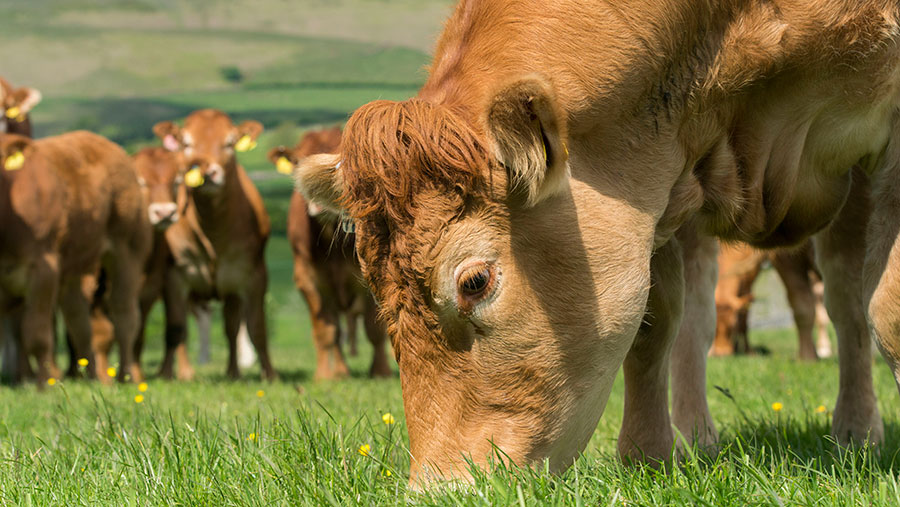Cheap food trade policy poses ‘threat to UK farming’
 © FLPA/REX/Shutterstock
© FLPA/REX/Shutterstock The government’s pursuit of new trade deals to lower food prices seriously risks undermining UK farmers and domestic food quality, according to a new Brexit study.
The report, published by the Green Alliance in partnership with the Food and Nature Task Force, examines how UK agriculture and trade policy will interact after the UK exits the European Union.
Currently, the UK imports about half its food – and 70% of this comes from EU countries, where it is largely produced to the same environmental and welfare standards as the UK.
See also: Trade minister grilled on agri-food post Brexit
But if the government fails to reach a good trade deal with the EU and instead unilaterally opens the UK to agricultural imports, food imports from countries outside the EU are likely to rise dramatically.
Non-EU imports of chicken could expand by 17 times, butter by 26 times and cheese by five times, the report states.
These changes pose significant risks to UK food and farming, including:
- Lower standards for UK agriculture: Allowing low-standard imports to compete with the UK’s high-standard farming will force UK farmers to lower their standards to remain competitive. It could result in them ploughing up field margins, or using more pesticides and fertilisers to maximise yields, increasing water pollution.
- Lower food standards: Food imported into the EU is four times more likely to exceed legal pesticide residues than food produced here.
- A bigger environmental footprint for UK food: Beef is more than twice as expensive to produce in the UK as in Brazil, but the environmental effect of Brazilian beef is nearly three times higher, mainly due to deforestation. Importing more beef from Brazil would increase the environmental footprint of UK food.
To avoid these risks, the authors say the government must develop a trade policy that supports high-quality food and environment standards – and that all imports should meet at least the same standards as UK-produced food.
‘In the dark’ on trade
Commenting on the report, NFU president Minette Batters said the country “remains in the dark about what the government’s overarching approach to trade will be”.
She added: “We still await a convincing explanation as to how the tension between protecting our own high standards of production and pursuing a cheap food trade policy will be resolved.”
